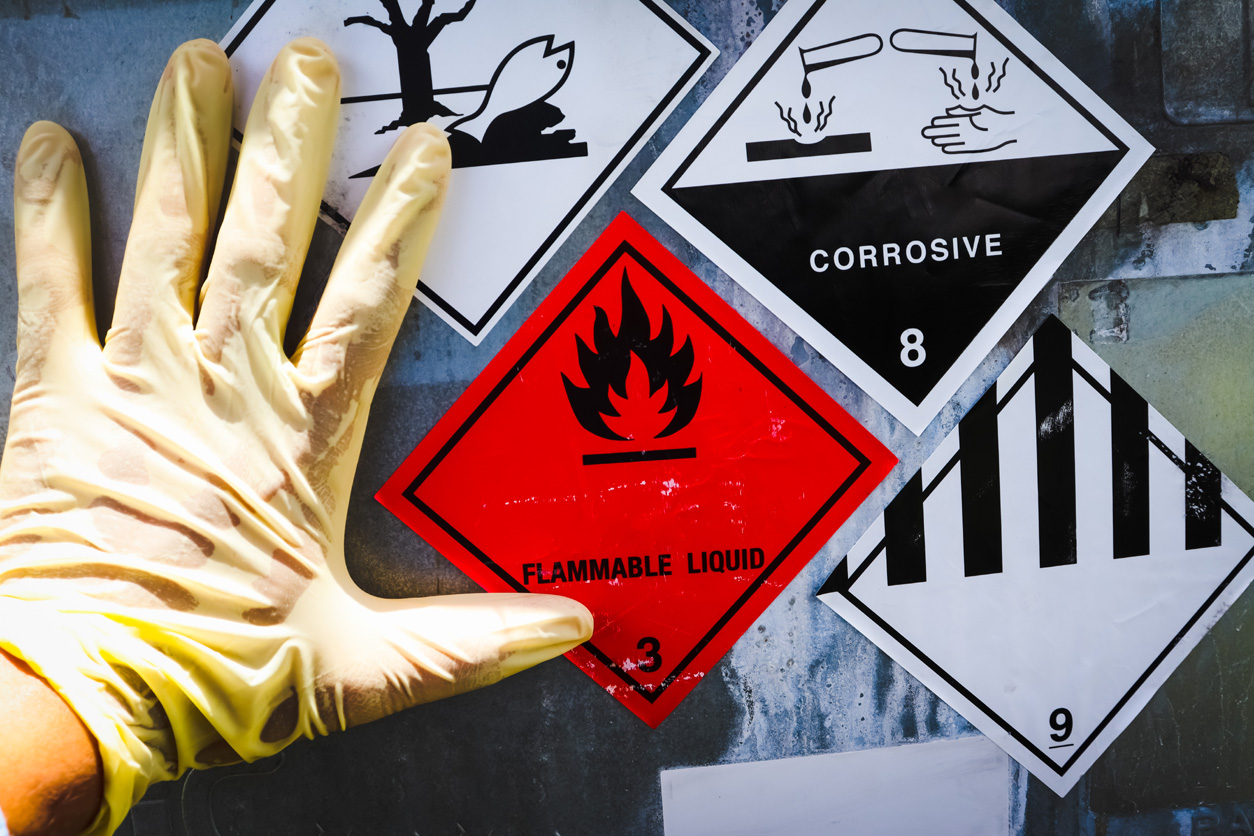Stephen Hasner | Workplace Injuries | December 27, 2023

Responsibility for hazardous chemical exposure in the workplace is a shared obligation, encompassing employers, employees, and third parties, with the overarching goal of safeguarding the health and well-being of all workers. State and federal laws have specific regulations and standards to ensure a safe work environment. However, when these responsibilities are neglected or overlooked, the consequences can be dire, leading to chemical exposure incidents that affect individuals profoundly.
Hasner Law specializes in personal injury and workers’ compensation cases. Our team of experienced attorneys is here to provide you with the guidance and support you need during this challenging time. Contact Hasner Law today to secure the legal representation that will protect your rights and help you seek compensation or benefits for any injuries or health issues resulting from chemical exposure in the workplace.
Navigating Hazardous Chemical Exposure in the Workplace
Workplace safety is a fundamental right for all employees, and when it comes to hazardous chemical exposure, the responsibility for safeguarding workers’ health is detailed both in federal and state laws.
Employer Responsibility: The Foundation of Workplace Safety
In Georgia, as in all states, employers are responsible for maintaining a safe work environment. This responsibility includes protecting employees from the hazards associated with hazardous chemicals. Employers are expected to adhere to several key principles to ensure workplace safety:
- Hazard Communication (HazCom) Standard: Employers must comply with OSHA’s Hazard Communication Standard (HazCom), which requires them to establish and maintain an effective hazard communication program. This program should include proper labeling of hazardous chemicals, providing Safety Data Sheets (SDSs) for employees, and conducting regular training to inform workers about the potential hazards they may encounter.
- Providing adequate personal protective equipment (PPE): Employers are responsible for providing appropriate PPE to employees. This can include gloves, masks, goggles, or other equipment necessary to protect employees from chemical exposure.
- Ensuring proper ventilation: Employers must guarantee that ventilation systems are adequate to minimize exposure to hazardous fumes, gasses, or dust.
- Training and education: Employers are required to provide comprehensive training to workers who may be exposed to hazardous chemicals. Training should encompass how to use chemicals safely, recognize potential hazards, and respond to chemical exposure emergencies.
- Regular workplace inspections: Employers should routinely inspect the workplace to identify and rectify potential hazards, including those related to chemical exposure.
Navigating the complexities of hazardous chemical exposure in the workplace and determining responsibility can be challenging. It’s advisable to consult with an experienced attorney. A knowledgeable attorney can help you assess liability, protect your rights, and seek the compensation or benefits you deserve for any injuries or health issues resulting from chemical exposure.
Employee Responsibility: Empowering Workers for Safety
Employees also play a pivotal role in their own safety and that of their colleagues when it comes to hazardous chemical exposure. Employees are responsible for:
- Participating in training: Workers should actively engage in training programs their employers provide. This training equips them with the knowledge and skills necessary to recognize chemical hazards and respond appropriately.
- Using personal protective equipment (PPE): Employees must use the PPE provided by their employers correctly. Failing to use the recommended protective equipment can put them at risk of chemical exposure.
- Reporting hazards: If an employee identifies a potential chemical hazard in the workplace, they have a responsibility to report it promptly to their employer or supervisor. This reporting helps employers take corrective measures to mitigate the hazard.
In some instances, third parties may be responsible for hazardous chemical exposure. These parties could include manufacturers or suppliers of hazardous chemicals. Under certain circumstances, the negligence or failure to provide adequate warnings by these third parties may be the cause of chemical exposure incidents.
Contact Our Experienced Hazardous Chemical Exposure Lawyers Today
The workplace should be where employees can pursue their livelihoods without fearing for their health or safety. However, when hazardous chemicals are part of the job, the potential for exposure and its consequences can be detrimental. Understanding who bears responsibility for safeguarding workers from hazardous chemical exposure in the workplace is essential to help protect workers.
Hasner Law is your ally in the pursuit of justice and the protection of your rights. With a deep understanding of personal injury and workers’ compensation law, our experienced team is here to guide you through the legal intricacies of hazardous chemical exposure claims. Contact Hasner Law today to secure the legal representation and support you need. You can schedule a consultation by calling (678) 888-4878 or completing our contact form.


